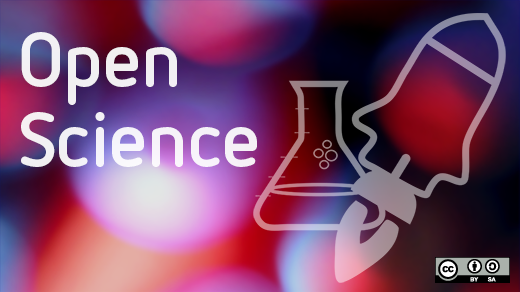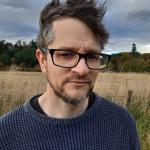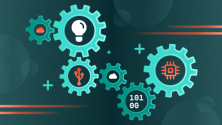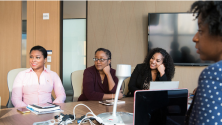Abby Mayes is a lead developer for Mozilla Science Lab, which is a global network of researchers, tool developers, librarians, and publishers who work to further open science on the web. Abby has previously done work as a bioinformatics software developer, was a mentor on the Genome Informatics Group, and has won several awards for science and mathematics.
In this interview with her prior to her talk at All Things Open this year, find out more about how to open up scientific data.

How did you get involved with Mozilla?
After some web development work in research labs, I realized there was huge potential to use the web to help move science forward. I spent the next few years building web tools for scientists at the Ontario Institute for Cancer Research.
I came across the Mozilla Science Lab on Twitter shortly after its launch in 2013. I knew I wanted to join this group that had a vision so similar to my own, so I reached out and started volunteering. In 2014, I joined staff as lead developer.
What does the Science Lab at Mozilla do?
The Mozilla Science Lab helps researchers leverage the open web.
We facilitate learning around open source and data sharing. By hosting regular events including scientific code sprints and encouraging open source scientific software development on our Collaborate platform, we create hands-on experiential learning opportunities for researchers.
We also empower researchers to lead in their communities. We offer fellowships and mentorship for early career researchers looking to be champions of open science in their fields.
Why does Mozilla care about science?
Mozilla's mission is to promote openness, innovation, and opportunity on the web.
The Science Lab represents an important community of practice where we can model training around open data and open source, project-based learning, and offer fellowships and mentorship programs to further leadership development around these areas.
How do you think open source and open data helps science?
The tools and practices around open source have the potential to transform the scholarly workflow and make research more collaborative and efficient. For hundreds of years, the academic journal system has enabled discoveries by sharing and crediting research.
Today, a higher level of participation and sharing can be achieved through the web. We've seen this in the open source movement. By working together, science can be more efficient and collaborative.
What kind of scientific data should be open? what about personal privacy?
A lot of research contains sensitive personal data that should not be shared widely. I am not advocating for the release of sensitive personal data, and I acknowledge that we need to have better conversation around privacy and open data.
It can be hard to draw the line between personal and public service data, especially in biomedical research. While this is a tough conversation, sharing de-identified datasets has saved time and helped reproducibility in the research community.
How's the scientific community doing in terms of opening up? is this movement gaining momentum?
We're definitely seeing momentum among early career researchers. There's a generation of scientists who grew up connected via the web and can see how code and data literacy would save them time and make their research more effective.
Hundreds of researchers have joined our code sprints or study groups. We are here to offer hands-on learning experiences through participation in open source projects and help them lead within their communities.
Are there scientific communities that are already very open?
Certain communities, like math and physics, have embraced many values in open science and benefit from the increased collaboration. The web was invented at CERN to help physicists share their data more effectively. Since then, they've been a pioneer of open data and collaboration.
Are there any examples of open science in action today?
Working at WormBase exposed me to a lot of open science values. WormBase is a curated biological database for nematode (roundworm) research. I worked to make it as easy as possible for researchers to find and consume this information.
Speaker Interview
This article is part of the All Things Open Speaker Interview series. All Things Open is a conference exploring open source, open tech, and the open web in the enterprise.







2 Comments